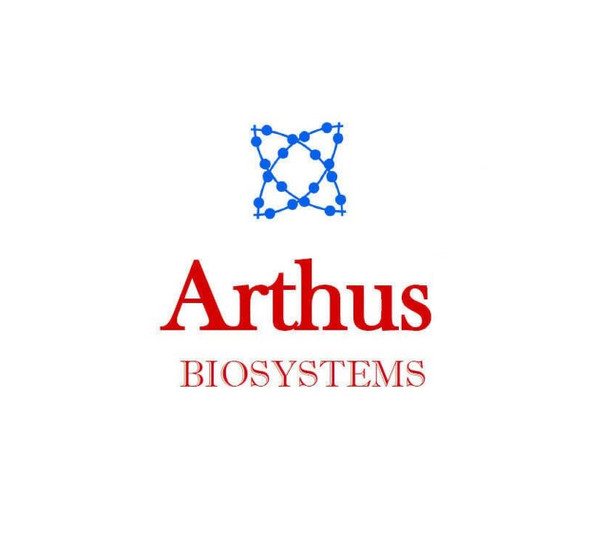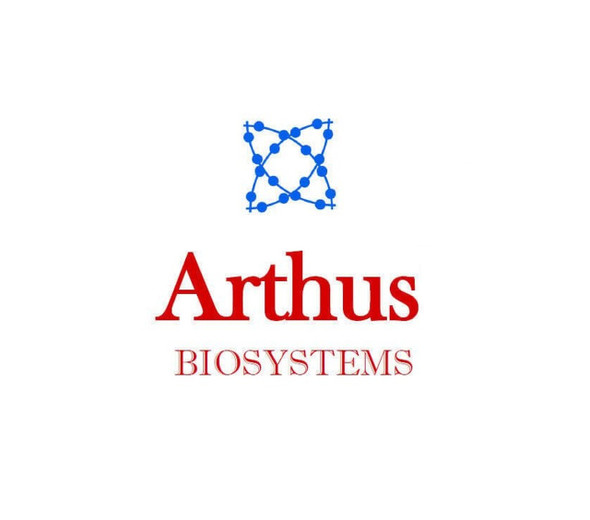Mouse Anti S-AdenosylHomocysteine (SAH) Clone 301-1 | MA00301
- SKU:
- ART-MA00301
- Availability:
- Usually Shipped in 5 Working Days
Description
Mouse Anti S-AdenosylHomocysteine (SAH) Clone 301-1 | MA00301 | Arthus Biosystems
Product name
Mouse anti-SAH la/b
Catalog Number
MA00301-50/100
Description
Mouse monoclonal antibody against S-Adenosylhomocysteine [301-1]
Specificity
MA00301 shows the following reactivities with related compounds: S-Adenosylhomocysteine: 100%, S-Adenosylmethionine: -1.5%, Adenosine: <1 %, Homocysteine: < 1%, L-Cysteine: < 1%, Glutathione: < 1%, L-Cystathionine: < 1%, Methythioadenosine (MTA): < 5%, ADP (adenosine diphosphate): < 1%, ATP (adenosine triphosphate): < 1%.
Immunogen
S-Adenosylhomocysteine conjugated to BSA
Properties
Form
Liquid
Storage instructions
Store at 4°C, -20°C for long term storage
Storage buffer
PBS 10mM pH7.4 (NaCI 150mM), Sodium azide 0.02%, BSA 10mg/m1 or PBS 10mM, pH7.4 (NaC1150mM), Sodium azide 0.02%, Glycerol 50%, BSA 10mg/m1
Purity
>95% Purified from mouse ascites fluid by affinity chromatography
Clonality
Monoclonal
Clone number
301-1
Immunoglobin isotype
IgG3
Affinity
Ka = 2.778 x 108L/mol ( 3.60 x 10-8M )
Research Areas
- Methylation of biomolecules (DNA, RNA, proteins, hormones, neurotransmitters, etc.)
- One-carbon metabolism
- Signal Transduction
- Metabolism
- Pathways and Processes Cancers
- Arthritis
- Heart diseases
- Neurodegenerative diseases
- Atherosclerosis
- Liver diseases
- Kidney diseases
Applications
The use of MA00301 in the following tested applications has been tested. The application notes include recommended starting dilutions. Optimal dilutions/concentrations should be determined by the end user. Higher dilution than suggested maybe used in IHC and IF. The product may be used in other not-yet-tested applications.
Notes
- cELISA: 1:4000/8000
- FCM: 1:200
- IHC: 1:200
Target
S-adenosylhomocysteine is a competitive inhibitor of S-adenosylmethionine-dependant methyl transferase reactions. Therefore, it plays a key role in the control of methylation via regulation of the intracellular concentration of S-adenosylhomocysteine.
Cellular localization
Cytoplasm, nuclear
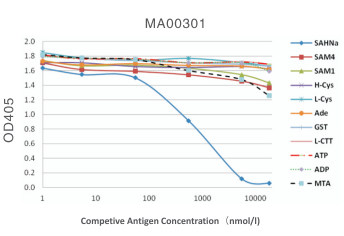
Figure 1: Competitive ELISA using anti-S-Adenosymethionine monoclonal antibody [301-1] (MA00301)
The 0.5 pg/ml of SAH-BSA was coated into 96 wells.Serial dilution of SAH standard (SAHNa),S-Adenosylmethionine (SAM4:Sigma-Aldrich Cat# A2408), SAM1:Aza. SAM Arthus Biosystems Cat# AST00201),Homocysteine (H-Cys), L-Cysteine (L-Cys ), Ad enosine (Ade),Glutathione (GST),L-Cystathionine (L-CTT),Methythioadenosine (MTA),ADP(adenosine diphosphate),ATP (adenosine triphosphate) and properly diluted MA00301 were added.HRP conjugated Goat anti-Mouse IgG antibody was used to develop the color.OD450 value was measured on each well.
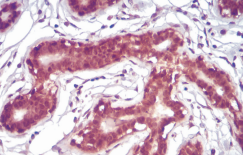
Figure 2: Immunohistochemistry staining was performed using MA00301 with benign breast tissue adjacent to carcinoma. Brown areas indicated strong positive staining in nuclear and cytoplasmic areas (x400).
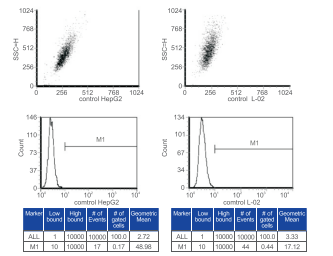
Figure 3: Control for FCM. Normal liver cells L02 and carcinoma cells Hep G2 were stained with the buffer without any antibody.
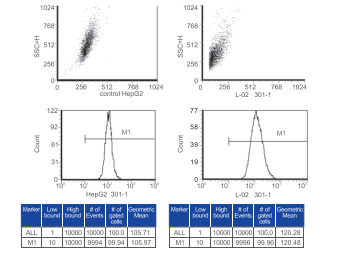
Figure 5: FCM results from normal liver cell line L02 and hepatocyte carcinoma cell line Hep G2 stained with anti-SAH monoclonal antibody from clone 301-1. Average fluorescence signal in Hep G2 cells (56.99) was reduced compared to that in L02 cells (103.36), indicating SAM level is reduced during carcinogenesis.

